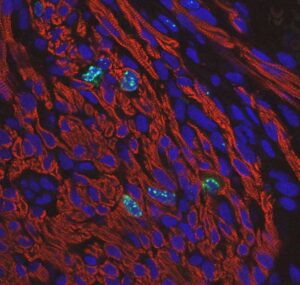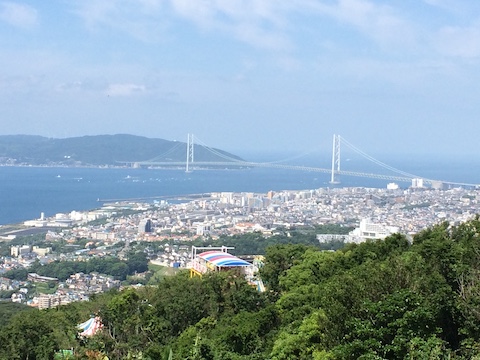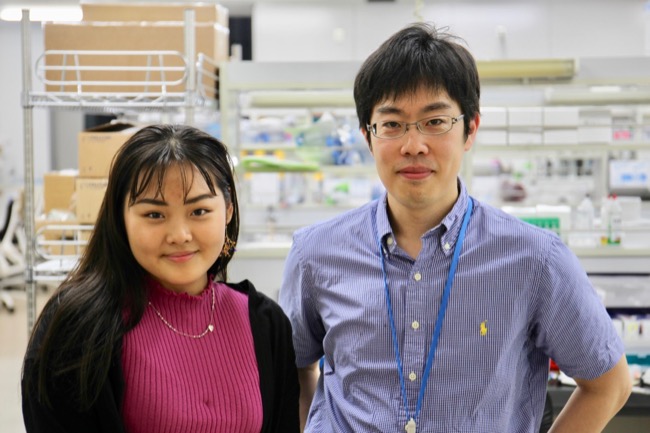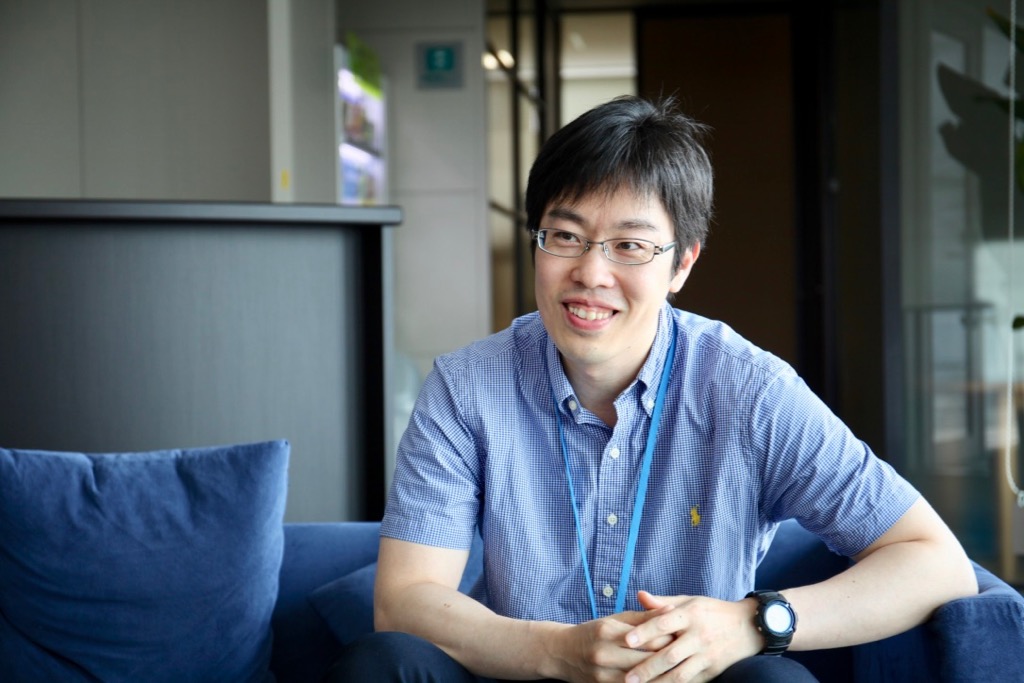Turning points and balance in a scientific career
BDR Team Leader
Wataru Kimura
Interviewed by Emily Bian
(Intern from University of Wisconsin-Madison)
Q: So let me start by asking you about where and what you studied, and why you decided to become a researcher?
A: I don’t know when I decided to be a scientist. When I was a really young, I loved insects, bugs and dinosaurs. My father also worked for a pharmaceutical company, and I sometimes used to visit his institute—this may have triggered my interest. But I loved science, so I majored in science. I wanted to study molecular biology, so I went to Nagoya University. At the time, it was one of the few (Japanese) universities that had a department for molecular biology. My parents lived in Tokyo, so attending Nagoya University meant living away from home. But for graduate school, I had to pay for my own tuition which can be tough so I returned to Tokyo to go to a university there.
As an undergrad and also a graduate student, I studied developmental biology. I really loved how embryos change in shape. So my first training was as a developmental biologist.
Q: Did you have any experiences in other labs before coming to RIKEN?
A: Yes, after I finished my PhD, I did a postdoc in Japan at a different place, and then went to the U.S. to do my second postdoc, before I got my position here.
Q: How did you get so good at English?
A: I don’t know. I had many good opportunities to talk to students from abroad when I was a graduate student and postdoc. But the reason I kind of got used to speaking and having conversations in English is because of where I went to in the U.S. to do my second postdoc—Dallas, Texas. I lived in Dallas for five years. There were not many Japanese people there, and I had to survive. There used to be many Japanese people living there maybe 10 or 20 years ago, but now there are not so many.
It was also in Dallas where I had the chance to change fields a little bit and started to work on regenerative medicine, specifically, cardiac regeneration.
Q: Was cardiac regeneration something you were interested in from before or was this something you randomly fell into and now you are doing it?

A: I am usually not very strategic in making career decisions, but I probably chose regenerative medicine because I wanted to study something a little more clinically relevant. When I was thinking about how I can do this, I thought that maybe I can apply my knowledge and skills as a developmental biologist to generate or regenerate damaged organs.
The heart seemed to me like a simple organ—all you need is cardiac muscle. It seemed easier than trying to generate a kidney or brain.
Q: What is the current focus of your research?
A: We can’t regenerate the heart yet. If you have a heart attack, there is an obstruction of the coronary arteries, and we lose a substantial amount of cardiomyocytes, the heart muscle cells, because they die and there is no way to get it back. What we are trying to do is to compare our heart muscle cells with those of other animal species, that are capable of regenerating their heart. I mainly use neonatal mice and compare them to adult mice, because heart muscle cells of neonatal mice are able to proliferate and regenerate the heart whereas those of adult mice cannot. You can easily compare the same species because they contain the exact same gene sets, but there is tremendous difference in the differentiation capacity between the neonatal cell and adult cell. Why? Well, that is my question and it leads to the question of aging as well.
Q: What kind of points do you focus on when you are going through your everyday lab routine?
A: I am sort of struggling with finding enough time for science and experiments. I always want to do experiments, but there is always a lot of paperwork, emailing and other stuff that also need to be done. RIKEN is really helpful, and there is clearly less paperwork here compared with universities and other places, but I am still struggling sometimes to find even a minute in a day or over a few days for my experiments—that is really tough.
Q: Do your research or lab assistants help you out with the paperwork?
A: Sure, yes. They help me a lot.
Q: So how many people are in your lab?
A: One research assistant, two technical staff, and one postdoc.
Q: Do you have any hobbies outside of research?
A: Actually, I moved to Kobe about two years ago, and this is my first time living close to a lot of mountains, so I have recently been climbing these mountains. It’s not that hard and it’s really fun. It doesn’t take that long to climb, just two or three hours, and it’s within walking distance from my apartment.

I usually go to the mountains on my own. But, the people I meet on the mountains are very kind and feel very close for some reason. They greet each other in passing, which is something less likely to be experienced in Japan compared to the U.S. So, it reminds me of my days in the U.S.
Q: Aren’t there a lot of elderly people in the mountains as well? Elderly people in Japan seem like they have more stamina.
A: Sure, because it’s not climbing per se. It is more like hiking or trekking, so it’s not that hard. But it depends on the person as not all elderly people are very active.
Q: I heard that as you get older, you don’t need as much sleep than before. I don’t know if I’m at that stage yet—I like sleeping a lot.
A: This can be explained by biological processes. People tend to wake up earlier as they get older.
Q: You said earlier that you are interested in aging, but what exactly about aging are you really interested in?
A: All of it. Nobody understands why all aspects of biological functions declines over time. What I’m asking is, why cardiac function declines with age. This is a huge problem in Japan and also all over the world. It is called heart failure—it is a state where the heart is not functioning sufficiently, making you always feel tired and there are a lot of other problems. Half of the people diagnosed with the disease die within five years, and there is no way to revert this state. When some people get older, you don’t see a failure, but you see an exponential increase of the chance of getting heart failure over time. But no one knows why. So I am focusing on metabolism, as there is a change in metabolic state over the course of aging.
I am focusing on metabolism at the cellular level. I am interested in revealing why the heart muscle cells use energy or generate energy differently at younger stages than at older stages.
It is tough to study aging compared to regeneration or development. But, this Center gave me the opportunity to study this field, and that’s one of the reasons why I love RIKEN. When I applied, it was for a position in the Center for Developmental Biology*1. So I kind of thought that I had return to the developmental biology field, when I really wanted to study regeneration and also aging. I asked the Center director at the time if it’s okay to study aging, and he told me that it was okay and even welcome.
*1 One of the predecessor centers of RIKEN BDR

